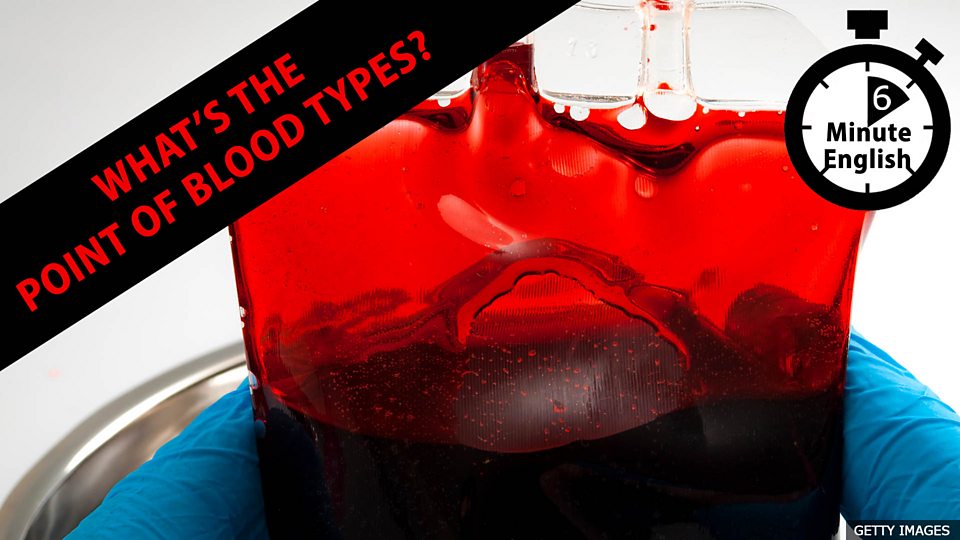이번주 BBC Learning English - 6 Minute English가 다룬 문법 관련 이슈 는 문장 형식(4), 분사(3), 관계대명사(3) 등이였습니다. 그 외에 관계부사, 서법조동사, 의문사, 인칭대명사 it 등이 각각 1 건씩 다루어졌습니다.
아래의 이미지를 클릭하시면 PDF로 된 대본(Script)를 다운받을 수 있습니다.
[영어 문장 공부] 자료를 처음 보시는 분은 아래의 링크를 클릭하셔서 「공부법」을 먼저 보시기를 권장 드립니다.
[영어문장공부] 학습법 보기
이 블로그에는 [BBC 6분 영어와 관련하여 매주 다음과 같은 글들이 게시 됩니다
- 단어공부(금주 대본에 나온 주요 어휘) https://softca.tistory.com/446
- 멀티단어공부(금주 대본에 사용된 멀티단어(구동사, 숙어) 간단 정리) https://softca.tistory.com/447
- 독해공부(금주 대본의 문장별 해석(직역) 자료) https://softca.tistory.com/449
- 문장별 문법공부(문장별 문법 설명) 이 글입니다
- 금주의 어휘(금주 대본에 나온 금주의 어휘를 집중적으로 정리한 자료) 이 글의 포스팅 시점에는 아직 작성되지 않았습니다.
- 항목별 문법공부(금주 대본에 나온 문법을 주제별/항목별로 정리한 자료) 이 글의 포스팅 시점에는 아직 작성되지 않았습니다.
- 금주의 구동사(금주 대본에 사용된 구동사 상세 정리) 이 글의 포스팅 시점에는 아직 작성되지 않았습니다.
[본문] [06] Ah, you mean the different groups used to classify humans by blood - types A, B, AB and O. I think I'm type O. How about you, Neil?
[설명] ⑴ you 주어, mean 동사, 'the different groups'이 목적어인 3형식 구조 문장입니다.
⑵ 「used」는 과거분사로 「the different groups」을 후위수식합니다. 분사 앞에 '주격관계대명사와 be 동사'가 생략되어 있다고 생각할 수 있습니다.
[본문] [07] Well, it may sound strange but actually I don't know.
[설명] ⑴ sound strange, 「sound」는 2형식의 문장을 만드는 연결동사입니다.
⑵ 서법조동사 may는 '추론'을 나타냅니다.
[본문] [09] People select romantic partners based on blood type and different blood groups are associated with different personalities.
[설명] 「based」는 과거분사로 「romantic partners」을 후위수식합니다. 분사 앞에 '주격관계대명사와 be 동사'가 생략되어 있다고 생각할 수 있습니다.
[본문] [12] Now, Neil, I have an interesting fact for you - did you know that many Japanese popstars' websites will feature their blood type alongside information like their age and hobbies?
[설명] feature '특별히 포함하다, 특징으로 삼다', '특징을 이루다'
[본문] [14] There's even a word 'burahara' meaning 'blood harassment', which is used to describe hostility towards people from a certain blood group considered to be selfish - but which group?
[설명] 「meaning」은 현재분사로 「burahara」를 후위수식합니다. 분사 앞에 '주격관계대명사와 be 동사'가 생략되어 있다고 생각할 수 있습니다.
[본문] [15] That's my quiz question for today - which blood types may fall victim to 'burahara'?
[설명] fall victim (to something) '(~에) 희생되다(~ 때문에 부상·훼손을 입거나 목숨을 잃는 것을 나타냄)'
[본문] [20] As we've heard, blood is a big deal in Japan.
[설명] big deal '] 대단한 것'
[본문] [21] Marnie Chesterton, from BBC World Service programme, CrowdScience, travelled to Tokyo where she asked Japanese translator, Chie Kobayashi, to explain more:
[설명] ⑴ where는 관계부사입니다, 선행사는 「Tokyo」입니다. 형식적으로는 제한적 용법이지만 계속적 용법으로 이해하는 게 좋습니다.
⑵ 'ask' 4형식 문장입니다. 4형식 동사를 수여동사라고 부릅니다. 간접목적어는 'japanese translator'이고 직접목적어는 'to explain more'입니다.
[본문] [22] For blood type A, generally it is thought they are perfectionists, more detail-oriented, pretty much good at precise type jobs, and that makes them good at helping others and good at teamwork and respecting rules and customs.
[설명] ⑴ 두 개의 문장이 and로 연결되어 있습니다.
⑵ ⑵번 문장은 5형식 문장입니다. them이 목적어, good 이하가 모두 목적격 보어입니다.
⑶ pretty much '거의[거의 완전히]'
detail-oriented 꼼꼼한
[본문] [27] But woe betide the twenty percent type Bs because they have a far less desirable personality, apparently.
[설명] woe betide [somebody] ~는 화를 당할지니라
[본문] [29] This contrasts with type Os who are considered to be stubborn - people who are determined to do what they want and refuse to change their mind.
[설명] ⑴ who는 제한적 용법의 관계대명사 입니다. 문장 성분은 '주격'이고, 선행사는 「type Os」입니다.
⑵ stubborn 완고한, 고집스러운, 완강한
contrast with …와 대조를 이루다[대비하다].
[본문] [30] But it's unfortunate blood type Bs who have the least desirable personality - selfish and independent.
[설명] it who 가주어 구문, 「who」절은 명사절로 it 가주어 구문의 주절입니다.
[본문] [32] But apart from customs and traditions, is there actually any science behind these beliefs?
[설명] apart from (전치사) …외에는, …을 제외하고
[본문] [34] She thinks that - like horoscopes - there's no scientific basis for a connection between blood types and personalities.
[설명] horoscope 점성술
[본문] [35] Which makes me wonder what exactly blood types are.
[설명] ⑴ which가 앞의 문장 전체를 선행사로 받는 계속적 용법의 관계대명사 기능을 합니다. '그리고 그것은'의 의미를 갖습니다.
⑵ make 5형식 문장입니다. 목적어가 「me」, 목적격보어가 「wonder」입니다. 원형부정사를 목적격 보어로 취했습니다.
⑶ what은 의문대명사입니다. 의문사절(명사절)/의문문을 이끕니다.
[본문] [36] Blood types are kinds of stickers or chemical markers which support our immune system - the organs, cells and processes which protect the human body from infection and illness.
[설명] which는 관계대명사입니다. 문장성분은 '주어'이고, 선행사는 「kinds of stickers or chemical markers」입니다. 제한적 용법입니다.





